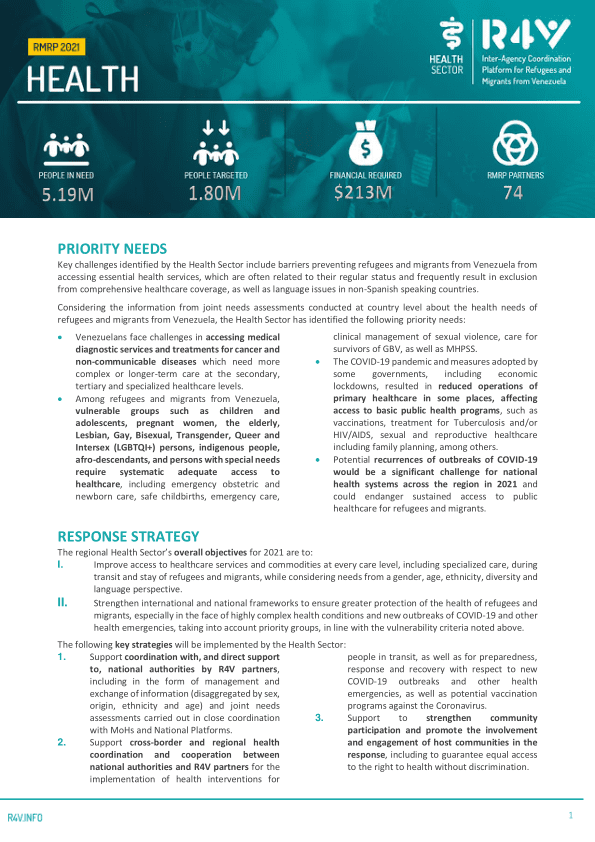
PRIORITY NEEDS
Key challenges identified by the Health Sector include barriers preventing refugees and migrants from Venezuela from accessing essential health services, which are often related to their regular status and frequently result in exclusion from comprehensive healthcare coverage, as well as language issues in non-Spanish speaking countries.
Considering the information from joint needs assessments conducted at country level about the health needs of refugees and migrants from Venezuela, the Health Sector has identified the following priority needs:
-
Venezuelans face challenges in accessing medical diagnostic services and treatments for cancer and non-communicable diseases which need more complex or longer-term care at the secondary, tertiary and specialized healthcare levels.
-
Among refugees and migrants from Venezuela, vulnerable groups such as children and adolescents, pregnant women, the elderly, Lesbian, Gay, Bisexual, Transgender, Queer and Intersex (LGBTQI+) persons, indigenous people, afro-descendants, and persons with special needs require systematic adequate access to healthcare, including emergency obstetric and newborn care, safe childbirths, emergency care, clinical management of sexual violence, care for survivors of GBV, as well as MHPSS.
-
The COVID-19 pandemic and measures adopted by some governments, including economic lockdowns, resulted in reduced operations of primary healthcare in some places, affecting access to basic public health programs, such as vaccinations, treatment for Tuberculosis and/or HIV/AIDS, sexual and reproductive healthcare including family planning, among others.
-
Potential recurrences of outbreaks of COVID-19 would be a significant challenge for national health systems across the region in 2021 and could endanger sustained access to public healthcare for refugees and migrants.








